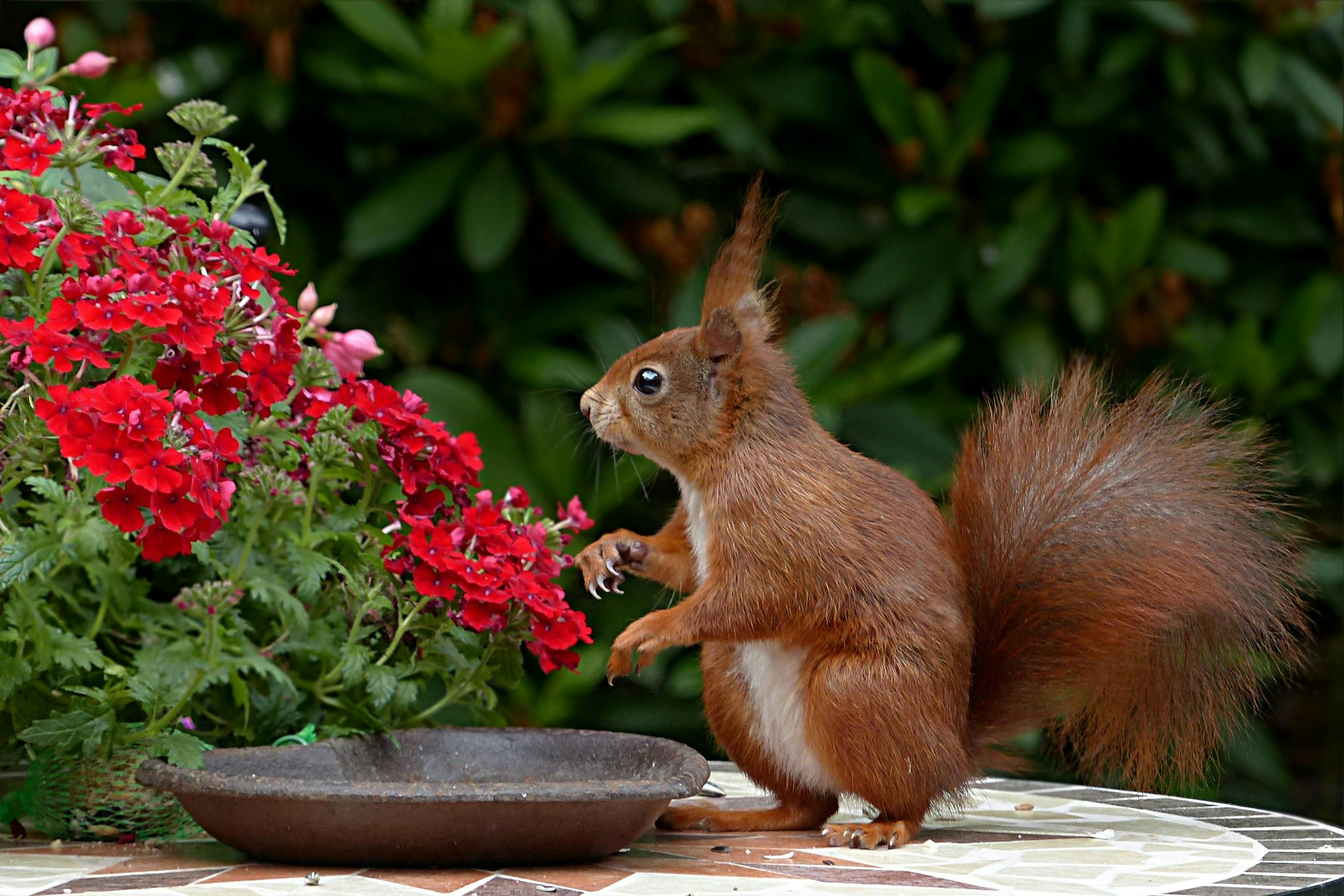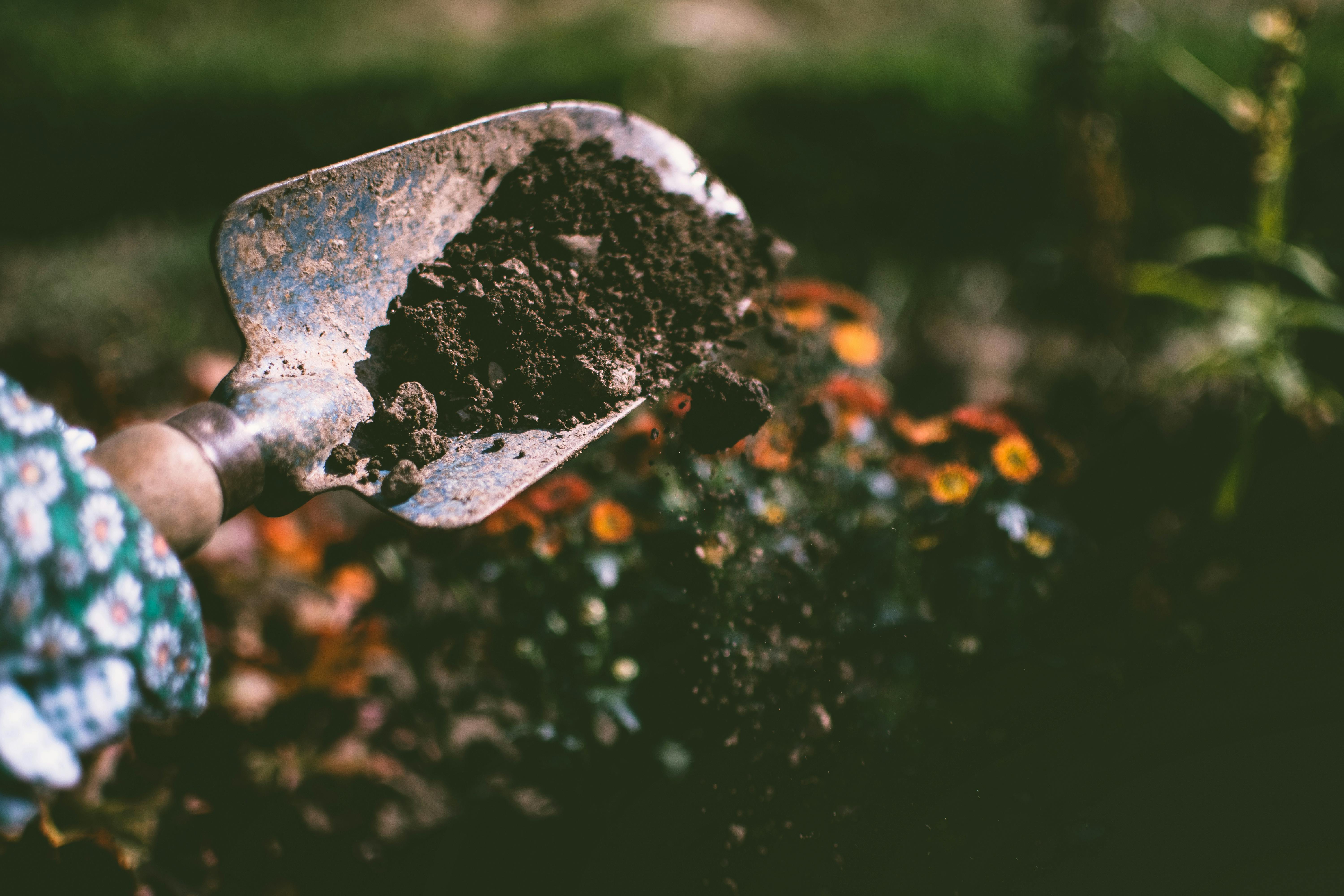Squirrels are fascinating animals that are known to be curious and active. One of the behaviors they are known for is digging up plants. This behavior can be a nuisance to gardeners, but it is actually an important part of the squirrel’s life cycle. In this article, we will explore why squirrels dig up plants and how to prevent them from doing so.Squirrels dig up a variety of items, including nuts, fruits, bulbs, and roots. They also dig to create burrows and nests in which they can store food and sleep. Additionally, squirrels may dig to uncover insects to eat or uncover buried caches of food they have previously stored.
What Do Squirrels Dig For?
Squirrels are known to be curious and intelligent creatures that spend a lot of time digging and foraging for food. Squirrels dig in the ground for many different reasons, including searching for food, building nests, and hiding their food caches.
When searching for food, squirrels often use their sharp claws and strong teeth to dig into the soil to uncover insects, nuts, and seeds that are buried beneath the soil. Squirrels will also build nests by digging burrows or hollowing out areas in trees. These nests can provide warmth and protection from predators.
Squirrels will also hide their food in caches underground. This helps them store up supplies of food during times of plenty so that they have something to eat when times are leaner or when winter comes around. They often use their front paws to bury small nuts or seeds in the ground so that they can come back later to retrieve them.
In addition to these activities, squirrels sometimes also dig up tunnels in the ground as they search for new areas where they can make their homes or find new sources of food. By digging these tunnels, squirrels can create pathways through which they can travel quickly and safely across large areas of land.
Overall, squirrels dig for a variety of reasons including searching for food, building nests, and storing up supplies of food during times of plenty. These activities help them survive and thrive in the wild!
Why Do Squirrels Dig Up Plants?
Squirrels dig up plants for a variety of reasons. One of the main reasons is to find food. Squirrels are omnivores, meaning they can eat both plants and animals, so they often dig up plants to get to the roots or bulbs that are underground. They also dig up plants to create den sites. By digging up the soil, they can create a safe place where they can hide from predators and store their food for later. Finally, squirrels will sometimes dig up plants in order to bury nuts and seeds that they have collected from other areas in order to save them for later. This helps them ensure that there is a steady supply of food available as the seasons change.
Digging up plants can also be a sign of territoriality or aggression in some cases. If two squirrels are competing for resources, one may try to dig up and damage the other squirrel’s plant hoard in order to gain an advantage over its competitor. Additionally, some squirrels will dig holes near certain areas in order to mark their territory and ward off potential intruders.
Do Squirrels Dig for Food?
Yes, squirrels do dig for food. They are highly active and energetic animals that are always searching for food. Squirrels use their sharp claws to dig through the soil and uncover food sources such as nuts, seeds, and insects.
Squirrels have a variety of digging techniques that they use to find food. Depending on the type of food they’re looking for, they may use shallow or deep digging methods. For example, if they’re looking for nuts or seeds, they usually dig shallow holes in the ground with their claws. If they’re searching for insects, however, they may go deeper into the dirt in search of them.
Not only do squirrels use their claws to dig for food, but they also use their teeth and noses to help them find it. They have an excellent sense of smell that helps them detect where certain types of food might be located underground. Additionally, their sharp teeth allow them to chew through tough materials like nuts and roots that could otherwise be difficult to access without digging tools.
Overall, squirrels are highly adept at finding food through digging. By using their claws, teeth and noses together in combination with different digging techniques, squirrels can unearth hidden sources of sustenance from the ground with ease.
Do Squirrels Dig to Hide Food?
Squirrels are known to be clever and resourceful animals. They often use a variety of methods to find and store food, including digging. Although it may not be as obvious as other methods, squirrels do dig in order to hide food for later.
Digging is a great way for squirrels to hide food from predators or thieving animals. By burying their food, they are able to protect it from being eaten or stolen. This helps them keep their food safe until they can come back and enjoy it later on.
Squirrels also dig in order to find buried nuts or seeds that they have forgotten about in the past. They use their strong claws and sharp teeth to dig through the dirt until they uncover the hidden treats beneath. This is especially helpful when there isn’t much available food in the area, as it gives them access to stored food that would otherwise be inaccessible.
Finally, squirrels also dig in order to create caches of food where they can store large amounts of food safely away from predators or other animals. This allows them to save up extra supplies for times when there isn’t enough available in the area, ensuring that they won’t go hungry during lean times.
In conclusion, Squirrels do indeed dig in order to hide and store their food for later use. This helps them protect their supplies from predators and other animals while also allowing them access to stored supplies when needed. By digging, Squirrels are able to ensure that they always have enough food available throughout the year.

Digging Up Plants
Squirrels provide an important role in the environment by digging up plants and helping to spread their seeds. This activity helps to maintain healthy wildlife habitats, as well as aiding in the growth of new plants. Digging up plants provides squirrels with several benefits, including food, shelter, and safety.
Food Source
Digging up plants is a great way for squirrels to find food. When they uncover roots or bulbs, they can eat them right away or store them away for later use. Squirrels also benefit from eating any seeds that may be found underneath the dirt when they dig.
Shelter
Digging also provides shelter for squirrels. They can make a nest underground to rest and stay safe from predators. The dirt also helps to keep them warm, as it acts like insulation against cold temperatures.
Safety
Finally, digging provides safety for squirrels. By being underground, they are less likely to be seen by predators and can hide quickly if needed. The dirt also acts as a barrier between them and any potential danger that may be lurking above ground.
Overall, the activity of digging up plants provides many benefits for squirrels, including food, shelter, and safety. This activity helps to keep wildlife habitats healthy and aids in the growth of new plants as well.
Do Squirrels Bury Food in the Ground?
Yes, squirrels often bury food in the ground. This behavior is known as ‘scatter hoarding’, and it helps squirrels to store food for later use. Squirrels generally bury their food in small caches and then later return to eat it. They have very good memories and can remember where they buried their food. Not only do they bury nuts, but they also sometimes bury other items such as fruits and seeds.
Squirrels will usually dig small holes in the soil using their front paws, and then fill it up with whatever food they are burying. Sometimes they will even use leaves or nearby objects to cover up the hole so that other animals don’t find it. After burying the food, squirrels will usually remember where the cache is located for weeks or even months at a time until it’s time for them to retrieve it.
Scatter hoarding is an important behavior for squirrels because it allows them to store up food during times of abundance so that they can access it during times of scarcity. This helps ensure that they have a reliable source of nutrition throughout different seasons and weather conditions. Additionally, scatter hoarding also helps prevent other animals from stealing their food since most animals are not able to remember where the caches are located.
Do Squirrels Damage Plants When They Dig Them Up?
Yes, squirrels can cause damage to plants when they dig them up. Squirrels have a natural instinct to dig for food and build nests, so it’s not uncommon for them to dig up plants in search of nuts, roots, and other edible items. This digging can cause damage to the plants’ roots and leaves, resulting in stunted growth or even death. In addition, the digging itself may damage the soil around the plant, leading to poor drainage and nutrient deficiencies. Finally, some squirrels may carry diseases or parasites that can spread to the plant, further damaging it. All of these factors can lead to significant damage if not addressed quickly.
Fortunately, there are a few ways to protect your plants from being dug up by squirrels. First, try planting deterrents such as strong-smelling herbs or plants with thorns around your garden. These will make it difficult for squirrels to get close enough to the plants to do any serious digging. You can also try covering vulnerable plants with netting or chicken wire as a physical barrier against digging. Finally, you can set up traps or deterrents such as motion-activated sprinklers in order to scare away any pesky squirrels that might be trying to get into your garden.

Conclusion
Squirrels dig up plants for a variety of reasons, including hunting for food, building nests, and seeking shelter. In addition, they may be looking for a place to store food or simply exploring their environment. As such, it is important to understand the needs of squirrels in order to create a safe and healthy habitat for them. By providing adequate food sources and shelters, we can ensure that squirrels will be able to continue to thrive in their natural habitats.
In conclusion, understanding why squirrels dig up plants is essential for co-existing with them in a safe and responsible manner. We must recognize the importance of providing adequate food sources and shelters so that they are able to continue living in their natural environments. With these steps taken, we can help ensure that both humans and squirrels have the opportunity to enjoy peaceful lives together.

